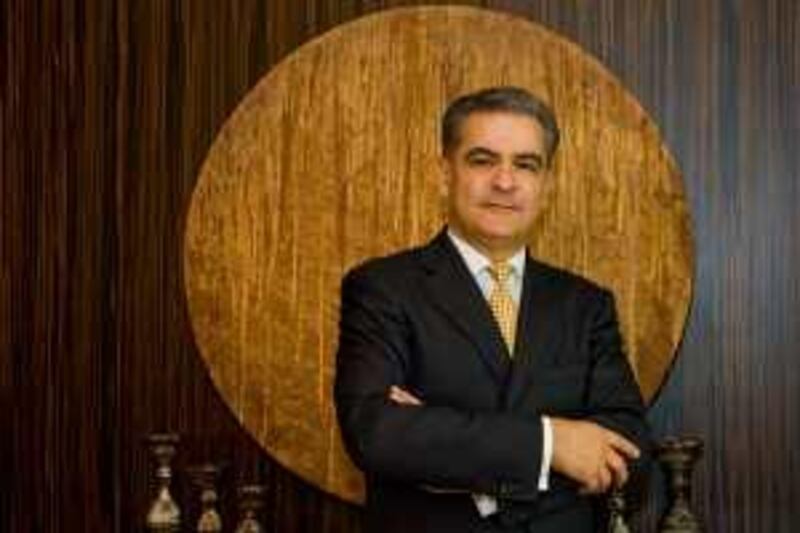NASDAQ Dubai yesterday launched the region's first Sharia-compliant tradable security backed by gold to satisfy a growing demand for the precious metal as a safe haven in the global recession. The product, which trades in the same way as an equity share and tracks the price of gold, is aimed at the region's high-net-worth individuals who are looking to diversify their portfolio, while conforming with Islamic investment principles. Named Dubai Gold, the product will allow them to invest in the metal without taking physical delivery. Each share initially represents one tenth of an ounce of gold. "There is a huge demand for Sharia-compliant products in the region. You can use this product to diversify your portfolio. We are the gateway... and just made it very easy to buy gold," said Jeffrey Singer, the chief executive of NASDAQ Dubai. Pradeep Unni, a research analyst at Richcomm Global Services in Dubai, said: "We have seen huge inflows into gold... and these kinds of products could imitate their huge success in the US." Investors are fleeing to gold as a means to preserve their wealth amid the fallout from the world economic crisis. In mid-February, the price of gold rose above US$1,000 an ounce for the first time in almost a year. Its highest level was at US$1,003 last March. On Monday, it closed at $950 an ounce. Experts say the region is predisposed to the product, partially because of its history as a trading place for the precious metal. "We see a huge potential in the GCC because of its affinity for gold," said Aram Shishmanian, the chief executive of the World Gold Council (WGC), which launched the product with Dubai Multi Commodities Centre (DMCC). "This region is predestined in terms of its wealth concentration. You find more of a trading mentality than an asset allocation approach. That makes an even stronger case for gold than in the western World." Mr Shishmanian said high-net-worth individuals and families were "more professionally driven than individuals elsewhere and often have portfolios the size of small institutional investors in the West". "The product could also become interesting for the region's sovereign wealth funds," said Marcus Grubb, the managing director at the WGC, citing a growing move into gold-backed exchange traded funds (ETFs) by large US pension funds and other funds. The WGC sponsors gold-backed ETFs worldwide, accounting for about 85 per cent of the market. ETFs are listed and traded similarly to equities, giving investors exposure to the gold market without taking physical delivery. Sponsors buy the gold and store it. The gold held by products in the WGC-backed ETFs is valued at more than $38 billion (Dh139.57bn). The Middle East is the world's third-largest centre for gold jewellery demand, after China and India. Gold is widely used to hedge against inflation and the dollar, and is considered a tool to preserve wealth. It is also the only asset class that has consistently risen in value in the past eight years, and was the only asset class besides US Treasuries to gain last year. The product will be the first exchange-traded commodity to be dealt on NASDAQ Dubai. In contrast to gold futures, which trade on the neighbouring Dubai Gold and Commodity Exchange (DGCX), each share will be fully backed by physical gold. Shares will trade in increments of $0.10. The annual cost for insurance and fees will be 40 basis points. This contrasts with annual fees of about 100 to 150 basis points for gold futures, assuming investors regularly roll over contracts. Meanwhile, buying real bullion can easily cost several percentage points and does not always assure the highest gold quality. The liquidity for Dubai Gold is backed by the London OTC gold market. uharnischfeger@thenational.ae
Dawn of Sharia-compliant gold trading
The product will trade in the same way as an equity share and track the price of gold.

Editor's picks
More from the national





